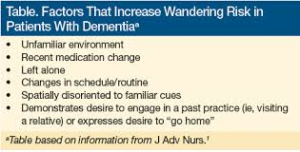
When a medical professional makes a mistake, the error can lead to a patient becoming disabled or disfigured. In a worst-case scenario, it can lead to a patient’s death.
Some mistakes are more common than others, but most of them can result in devastating consequences for the family of the deceased or disabled individual. According to Illinois law, if you are either of these, you can file a medical malpractice lawsuit and get the compensation you deserve and need.
However, to prove the claim in court, you must prove the mistake fell below the standard of care the doctor was supposed to maintain, thus resulting in the incident. In other words, you cannot file a medical malpractice lawsuit if the procedure and the diagnoses were not to your liking. This includes mistakes that did no harm to a patient.
Valid Medical Malpractice Claims
The following medical practice claims can hold up in court:
- Misdiagnosis – Failing to diagnose a medical ailment or failure to diagnose it incorrectly is the most common mistake a doctor can make. These often lead to devastating consequences or debilitating injuries.
- Surgical Mistakes – Common mistakes include leaving sponges, gauze, or surgical equipment inside a patient before sewing up the surgical site or performing surgery on a patient who doesn’t need one.
- Medication Mistakes – This includes prescribing incorrect doses and medications and disclosing incorrect methods of administration. Additionally, doctors who prescribe drugs that have to possibility to harmfully interact with medicine the patient is currently taking also is grounds for medical malpractice.
Illinois Medical Malpractice Statute of Limitations
You cannot take your time filing a medical malpractice claim. The statute of limitations places strict timelines on the time you have to file a case in civil court. In Illinois you have two (2) years to do this, but the clock starts from the date the offending medical practitioner knew or should have known about the medical concerns, which resulted from malpractice.
There is a larger deadline for cases in which the patient’s injuries are not discovered until later. In that case, the plaintiff has four (4) years after the date the medical mistake occurred. If the plaintiff is under 18, their case must be filed within at least eight (8) years of the date but not beyond their 22nd birthday. In either case, you have ample time to bring the negligent medical personnel or medical facility to task and get the compensation you deserve and need.
Whether you are suffering from the results of medical malpractice or acting on behalf of someone who has fallen victim to one, you need aggressive legal representatives in your corner. The attorneys at the Law Offices of Robert T. Edens have more than two decades of experiences representing clients who have suffered because of a doctor, nurse or hospital’s neglect.

To ensure you have a solid case, we will analyze all medical documentation pertaining to the case and consult with experts before coming up with a plan of action to present in court. We represent clients in Chicago, Waukegan, Libertyville, Woodstock and Antioch, Illinois so you can get in touch with us today.

 Under the state of Illinois Law, a doctor or a health care professional will be committing medical malpractice if they are in breach of an established standard of care while providing medical treatment to their patient, which causes a serious injury or could result in a fatality. The term “standard of care” indicates the set of various medical standards and treatment practices any medical professional would rely on while treating patients under similar circumstances.
Under the state of Illinois Law, a doctor or a health care professional will be committing medical malpractice if they are in breach of an established standard of care while providing medical treatment to their patient, which causes a serious injury or could result in a fatality. The term “standard of care” indicates the set of various medical standards and treatment practices any medical professional would rely on while treating patients under similar circumstances.
 Wandering is one of the most intriguing, potentially, hazardous, and least understood behaviors amongst the elders in nursing homes. Additionally, it has been poorly defined and is very ambiguous despite that it is a very common occurrence of elderly patients whose care has been entrusted to a facility to keep them safe.
Wandering is one of the most intriguing, potentially, hazardous, and least understood behaviors amongst the elders in nursing homes. Additionally, it has been poorly defined and is very ambiguous despite that it is a very common occurrence of elderly patients whose care has been entrusted to a facility to keep them safe.
